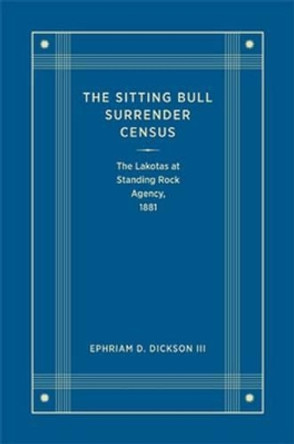Description
Sitting Bull and the Paradox of Lakota Nationhood explores the complexities and evolution of Lakota society and political culture within Sitting Bull's lifetime as the Lakotas endured wave after wave of massive military and civilian intrusion into their lands. For a people not accustomed to living under a centralized authority, the Lakotas found themselves needing one to galvanize resistance against a relentless and rapidly expanding nation. Despite tactical success on a number of battlefields, Sitting Bull and the Lakotas lacked the military and political might to form an unyielding consensus on how to deal with the United States' aggressive land seizures and military attacks. Ultimately, on the blood-soaked ground at Wounded Knee, amid the slaughter of noncombatants and aging warriors, the Lakotas would see their independence broken and Sitting Bull's vision of a Lakota nation free of U.S. influence lost. This edition features a new afterword.
About the Author
Gary C. Anderson is a professor of history at the University of Oklahoma. He is the author of Massacre in Minnesota: The Dakota War of 1862, the Most Violent Ethnic Conflict in American History and Gabriel Renville: From the Dakota War to the Creation of the Sisseton-Wahpeton Reservation, 1825-1892, among others. Mark C. Carnes is a professor of history at Barnard College of Columbia University and specializes in American history and pedagogy. He is general coeditor of the 24-volume American National Biography.
Reviews
"This book is particularly suitable for courses in Native American studies, American history, and cultural studies, providing students with a comprehensive understanding of Native American resistance against colonial pressures. It would also benefit policymakers, activists, and the general public interested in American and Canadian history. Educators, scholars, historians, and biographers will find Anderson's approach instructive. This ensures the book's broad and impactful reach in discussions about Indigenous history and its implications for contemporary society."-John Bessai, H-History-and-Theory
"Anderson blends concision, fine storytelling, fluid writing, and keen cultural insight to produce the best single volume grounding Sitting Bull firmly within the context of Lakota culture."-David C. Beyreis, Annals of Wyoming
"Tracing Sitting Bull's life and experiences that led to the famed battle, Anderson profiles the Lakota leader in a fresh way and one which frames him as a tireless leader of his people and their rights until his death."-Erik J. Wright, True West
"Sitting Bull persevered and even at times triumphed. He became the symbol of opposition to a government policy of assimilation, or cultural conformity, that sought as its goal the destruction of a people and their identity. For that reason, we need to remember this man in history, and we need to study him. In the face of overwhelming odds, he continued to believe that his way of life, his religion, his understanding of the world, of life and earth itself, were right for him and his people."-from the preface
Book Information
ISBN 9781496232670
Author Gary C. Anderson
Format Paperback
Page Count 228
Imprint University of Nebraska Press
Publisher University of Nebraska Press
Dimensions(mm) 216mm * 140mm * 13mm






